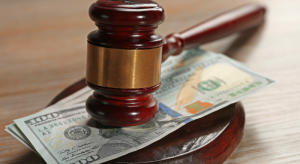Have you ever heard of the term ‘racketeering’ and wondered what it means? Racketeering is a serious illegal business practice that involves using threats, violence, or intimidation to control or manipulate a business or industry. It is often associated with organized crime groups who use this tactic to gain power and make money. In this blog post, we will discuss everything you need to know about racketeering, including its definition, different types of crimes committed, and how it can affect businesses. We’ll also give you tips on how to protect yourself from racketeers and ways to prevent or combat this illegal activity. Keep reading to learn more about the penalties for racketeering in the UK and what you can do to stay safe from its harmful effects.
What is Racketeering?

Racketeering is a term used to describe various illegal activities typically associated with organized crime. These activities can include extortion, bribery, fraud, money laundering, and other forms of criminal behaviour. Racketeering is often used to describe the actions of groups or individuals who engage in illegal activities for financial gain or to exert control over a particular industry or area.
The term “racket” is derived from the concept of an illegal business operation that generates income through fraudulent or coercive means. Racketeering is a serious offence that can result in significant legal penalties, including fines and imprisonment. Awareness of the signs of racketeering and reporting any suspicious activity to law enforcement authorities is important.
What Are the Penalties for Racketeering?

Racketeering is a serious crime in the UK; those found guilty can face harsh penalties. Penalties for racketeering typically include a prison sentence of 30 to 37 months, fines, and other legal consequences. In some cases, those convicted may also be required to pay restitution to their victims. It is important for individuals to understand the severity of racketeering charges and to seek legal counsel if they are facing such charges. A skilled lawyer can help build a strong defence and work to mitigate the potential penalties associated with this crime.
How Racketeering Affects Businesses?

Racketeering is the act of obtaining money or property through illegal means. It is a form of organized crime that affects businesses of all sizes. Racketeering can involve extortion, money laundering, bribery, and other criminal activities.
Racketeering can have a devastating effect on businesses. It can destroy company morale, damage business relations, and lead to financial ruin. Racketeers often target businesses struggling financially or with weak internal controls. They may also target businesses that are involved in controversial activities or that are located in high-crime areas.
Racketeering can have a serious impact on the economy as a whole. It increases the cost of doing business and discourages investment and entrepreneurship. Racketeering also diverts resources away from productive uses and into the pockets of criminals.
The best way to protect your business from racketeering is to be aware of the risks and take steps to mitigate them. Ensure your employees know the dangers of racketeering and are trained to spot red flags. Implement strong internal controls to prevent and detect fraud. And lastly, stay informed about changes in the law and updates from law enforcement so you can adapt your policies and procedures accordingly.
What Are the Different Types of Racketeering?

There are many different types of racketeering, but they all have one thing in common: they use illegal or dishonest methods to gain an economic advantage. Here are some of the most common types of racketeering:
1. Bribery: This is when someone offers money or other valuables to another person in exchange for a favour or advantage. Bribery is often used to corrupt public limited officials or influence business deals.
2. Extortion: This is when someone threatens to harm someone else unless they receive money or other valuables. Organized crime groups often use extortion to force businesses to pay them “protection money.”
3. Money laundering: This is when criminals try to hide the source of their ill-gotten gains by moving the money through a series of financial transactions. Money laundering can be used to finance criminal activities or to legitimize income from illegal sources.
4. Insurance fraud: This is when someone falsifies information on an insurance application in order to receive benefits they are not entitled to. Insurance fraud can be committed by individuals, businesses, or even insurance companies themselves.
5. Securities fraud: This is when someone tries to manipulate the stock market for personal gain illegally. Securities fraud can take many forms, including insider trading, false advertising, and Ponzi schemes.
Racketeering is a serious crime that undermines the integrity of our economy and society. From bribery to securities fraud, these illegal activities can cause significant harm to individuals and businesses alike. It is important for law enforcement agencies to remain vigilant in their efforts to identify, investigate, and prosecute those who engage in racketeering. By holding these criminals accountable, we can help ensure a level playing field for all members of society.
Ways to Prevent or Combat Racketeering

There are many ways to prevent or combat racketeering. Here are some suggestions:
- Educate yourself and others about the signs of racketeering and what to do if you suspect it is happening.
- Support law enforcement efforts to investigate and prosecute racketeers.
- Report any suspicions or actual instances of racketeering to the authorities.
- Encourage businesses to adopt policies and practices that discourage racketeering activity.
- Promote ethical behaviour in all aspects of life.
Conclusion
Racketeering is a serious crime that can have far-reaching consequences for individuals and businesses alike. It is important to understand the penalties associated with racketeering and how it affects businesses in order to take necessary precautions. Various types of racketeering include extortion, money laundering, and fraud. To prevent or combat racketeering, it is important to be aware of the signs and to report any suspicious activity. Protecting yourself from racketeers involves taking steps such as avoiding illegal activities and not associating with known criminals. If you want to learn more about how you can protect yourself from this illegal business practice, read our informative blog on preventing racketeering.









